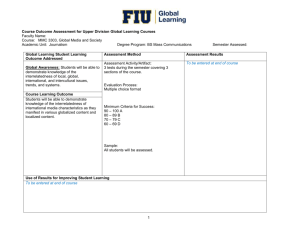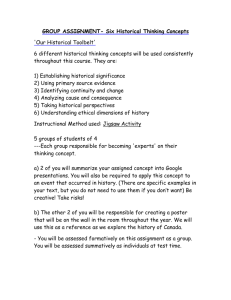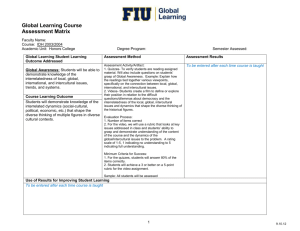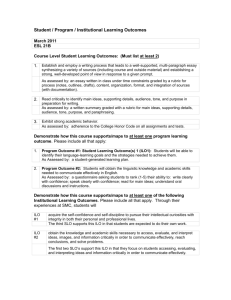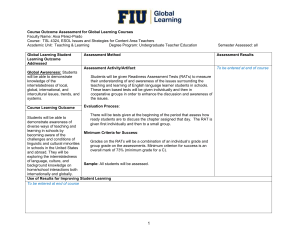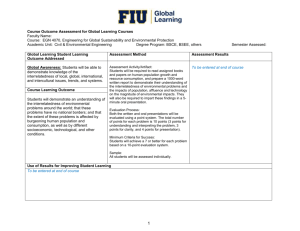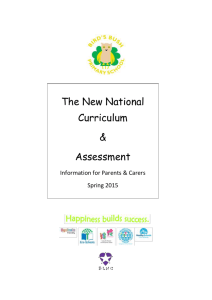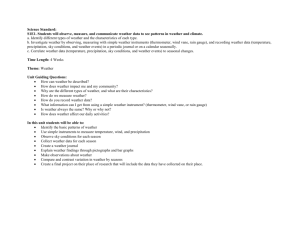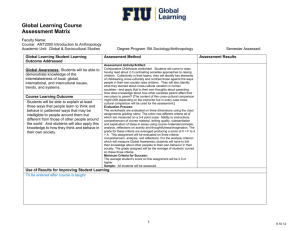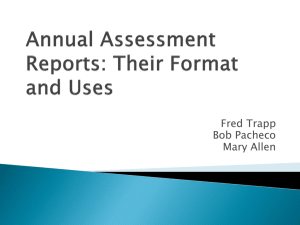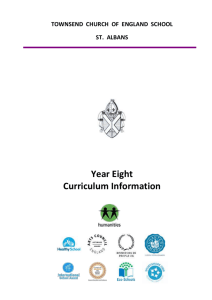Matrix - FIU Global Learning
advertisement
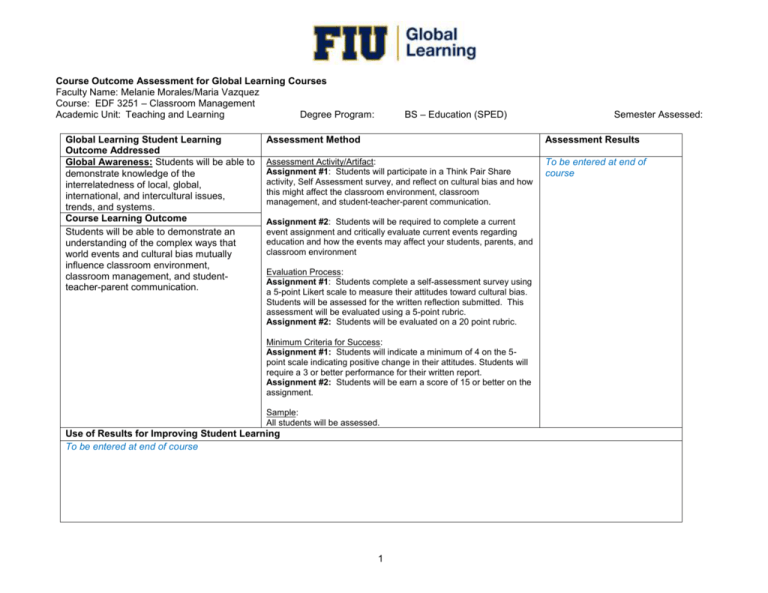
Course Outcome Assessment for Global Learning Courses Faculty Name: Melanie Morales/Maria Vazquez Course: EDF 3251 – Classroom Management Academic Unit: Teaching and Learning Degree Program: Global Learning Student Learning Outcome Addressed Global Awareness: Students will be able to demonstrate knowledge of the interrelatedness of local, global, international, and intercultural issues, trends, and systems. Course Learning Outcome Students will be able to demonstrate an understanding of the complex ways that world events and cultural bias mutually influence classroom environment, classroom management, and studentteacher-parent communication. BS – Education (SPED) Semester Assessed: Assessment Method Assessment Results Assessment Activity/Artifact: Assignment #1: Students will participate in a Think Pair Share activity, Self Assessment survey, and reflect on cultural bias and how this might affect the classroom environment, classroom management, and student-teacher-parent communication. To be entered at end of course Assignment #2: Students will be required to complete a current event assignment and critically evaluate current events regarding education and how the events may affect your students, parents, and classroom environment Evaluation Process: Assignment #1: Students complete a self-assessment survey using a 5-point Likert scale to measure their attitudes toward cultural bias. Students will be assessed for the written reflection submitted. This assessment will be evaluated using a 5-point rubric. Assignment #2: Students will be evaluated on a 20 point rubric. Minimum Criteria for Success: Assignment #1: Students will indicate a minimum of 4 on the 5point scale indicating positive change in their attitudes. Students will require a 3 or better performance for their written report. Assignment #2: Students will be earn a score of 15 or better on the assignment. Sample: All students will be assessed. Use of Results for Improving Student Learning To be entered at end of course 1 Course Outcome Assessment for Global Learning Courses Faculty Name: Melanie Morales/Maria Vazquez Course: EDF 3251 – Classroom Management Academic Unit: Teaching and Learning Degree Program: Global Learning Student Learning Outcome Addressed Global Perspective: Students will be able to conduct a multi-perspective analysis of local, global, international, and intercultural problems. Course Learning Outcome Students will be able to analyze diverse cultural elements in the home, school, local and international arena may affect the classroom environment, classroom management, and student-teacher-parent communication. BS – Education (SPED) Assessment Method Assessment Results Assessment Activity/Artifact: Students will interview a cultural group other than their own regarding the language, attitudes towards time, space/proximity issues, gender roles, autonomy, and education. To be entered at end of course Students will write a reflection piece of how these cultural elements might impact the classroom environment, classroom management, and student-teacher-parent communication. Evaluation Process: Students will be assessed for the written report submitted. This assessment will be a evaluated using a 5-point rubric. Minimum Criteria for Success: Students will require a 3 or better performance for their written report. Sample: All students will be assessed. Use of Results for Improving Student Learning To be entered at end of course 2 Semester Assessed: Course Outcome Assessment for Global Learning Courses Faculty Name: Melanie Morales/Maria Vazquez Course: EDF 3251 – Classroom Management Academic Unit: Teaching and Learning Degree Program: Global Learning Student Learning Outcome Addressed Global Engagement: Students will be able to demonstrate willingness to engage in local, global, international, and intercultural problem solving. Course Learning Outcome Students will be able to utilize culturally responsive practices required for classroom management. BS – Education (SPED) Assessment Method Assessment Results Assessment Activity/Artifact: Students will design an effective learning environment plan which address the needs of diverse learners as it relates to: placement in the classroom, cultural and linguistic differences among students with rule development, and communication with parents and caregivers. To be entered at end of course Evaluation Process: Students will be assessed for the written report submitted. This assessment will be evaluated using a 3-point rubric. Minimum Criteria for Success: Students will require a 2 or better performance for their written report. Sample: All students will be assessed. Use of Results for Improving Student Learning To be entered at end of course 3 Semester Assessed:

